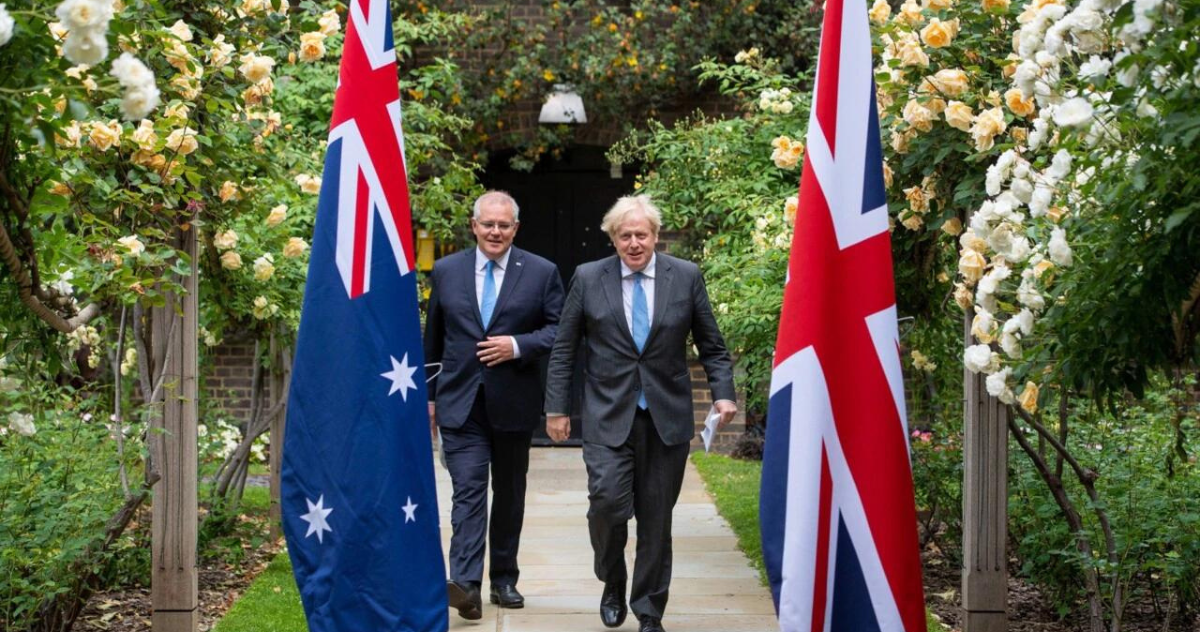UK (Parliament Politic Magazine) – Following the cancellation of Australia’s annual Australia Day Gala Dinner in London by the country’s high commissioner to the UK, opposition leader Peter Dutton has called on Prime Minister Anthony Albanese to step in. Because of the sensitivity around celebrating on the national day, Stephen Smith has blocked the event from taking place. Over a senior diplomat’s suggestion to open an international black-tie fundraiser on Australia Day, the Coalition has erupted into fury.
Mr Smith Says
After postponing the January 26 Australia Day black-tie dinner, Peter Dutton has demanded an apology from Australia’s top-ranking British diplomat. The timing of an annual Australia Day fundraiser was canceled by the High Commissioner to the UK, Stephen Smith, in the case of “sensitivities” associated with the day, which has generated controversy in prior years. Later, a representative for Mr. Smith stated that the decision was made to suggest a different night for the well-known event.
The head of the opposition referred to the decision to change the date as “crazy” and “utterly unacceptable” in a televised speech that aired on Tuesday. He also demanded that Mr. Smith openly backtracked on his choice. Australia’s top British diplomat, Peter Dutton, has been ‘ashamed’ and urged for an apology after postponing an Australia Day black-tie gala until January 26. Citing Sensitivities associated with the day, which has been the source of controversy in recent years, Australia Day fundraiser High Commissioner to the UK, Stephen Smith, decided to cancel the event.
Dutton states,
“How is it possible for our High Commissioner to be embarrassed about Australia Day? Australia Day honors our ancestry and history, according to Mr. Dutton. I believe I speak for most Australians who are proud of their nation and aware of its history of both European colonization and Indigenous ancestry. There should be more celebrations like that.
For Indigenous people, January 26, the anniversary of the First Fleet’s landing at Sydney Cove in 1788, is a day of grief. Some activists refer to this day as Invasion Day or Survival Day. In 2022, YouGov polled over 2,000 individuals and discovered that 56% of respondents supported maintaining Australia Day on its current date. However, over half of those under 35 were in favor of a revised date.
Opposition Indigenous spokesman Jacinta Price joined the outcry, telling 2GB early on Tuesday that Mr. Smith’s choice to change the event’s schedule was “un-Australian.”In my opinion, it’s a put-down to finish Australia Day festivities. She remarked, “I believe we need to get back to celebrating what it means to be Australian.
The Coalition’s demands to not move the date coincided with growing leadership debate on how to move forward with the nation’s attempts to achieve Indigenous reconciliation in the wake of the Voice referendum’s failure.
Read More: British Chambers of Commerce to Support the Fair Civil Justice
Megan Davis Says
.After the defeat on October 14, Voice architect and well-known Voice advocate Professor Megan Davis made her first public statement.
Even while grieving communities thought the chance for reconciliation was “dead,” the grassroots Indigenous rights movement will carry on with its fight. Speaking out earlier this week, former minister of affairs Ken Wyatt told the Sydney Morning Herald that, even in light of the constitutional Voice’s rejection, bridging the divide should be approached in a “pragmatic” manner.
Opposition leader in Queensland, David Crisafulli, has attacked the state government, saying it is “at war with itself” rather than concentrating on issues such as the housing problem, teenage violence, and the rising cost of living.
The government has not yet confirmed the Uluru Statement’s other components, Treaty and Truth. $5.8 million has already been set up to “start work on establishing an independent Makarrata Commission to oversee processes for truth-telling and agreement-making.”According to a spokesman for Indigenous Affairs Minister Linda Burney, the minister’s top priority for 2024 will be the concerns that Aboriginal and Torres Strait Islander people have highlighted, such as housing, justice, jobs, health, and education.
This entails replenishing the “failed” distant employment and community development services program, investing in essential services in outlying communities, and providing additional cash for justice reinvestment to lower imprisonment rates.

